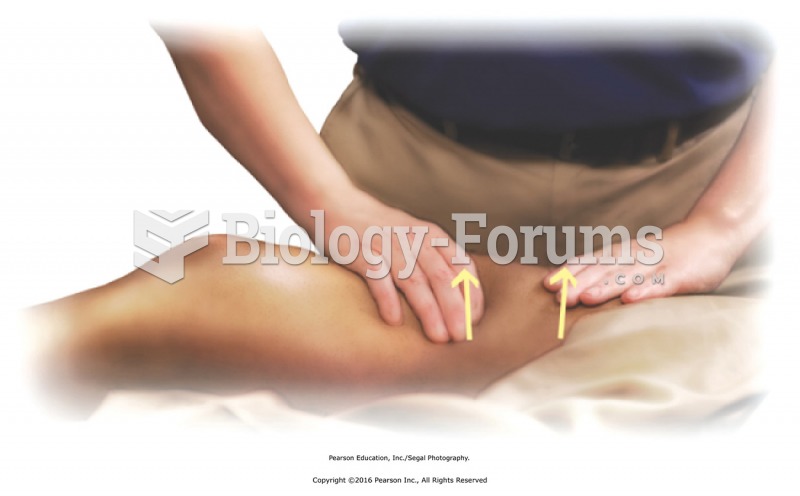|
|
|
There are major differences in the metabolism of morphine and the illegal drug heroin. Morphine mostly produces its CNS effects through m-receptors, and at k- and d-receptors. Heroin has a slight affinity for opiate receptors. Most of its actions are due to metabolism to active metabolites (6-acetylmorphine, morphine, and morphine-6-glucuronide).
People often find it difficult to accept the idea that bacteria can be beneficial and improve health. Lactic acid bacteria are good, and when eaten, these bacteria improve health and increase longevity. These bacteria included in foods such as yogurt.
The first documented use of surgical anesthesia in the United States was in Connecticut in 1844.
The first-known contraceptive was crocodile dung, used in Egypt in 2000 BC. Condoms were also reportedly used, made of animal bladders or intestines.
There used to be a metric calendar, as well as metric clocks. The metric calendar, or "French Republican Calendar" divided the year into 12 months, but each month was divided into three 10-day weeks. Each day had 10 decimal hours. Each hour had 100 decimal minutes. Due to lack of popularity, the metric clocks and calendars were ended in 1795, three years after they had been first marketed.
 Skull of an Oriental giant squirrel (genus Ratufa) - note the classic sciuromorphous shape of the an
Skull of an Oriental giant squirrel (genus Ratufa) - note the classic sciuromorphous shape of the an
 Basic sliding effleurage to the lower leg. Apply from heel of foot to knee. Conform hands to contour ...
Basic sliding effleurage to the lower leg. Apply from heel of foot to knee. Conform hands to contour ...





